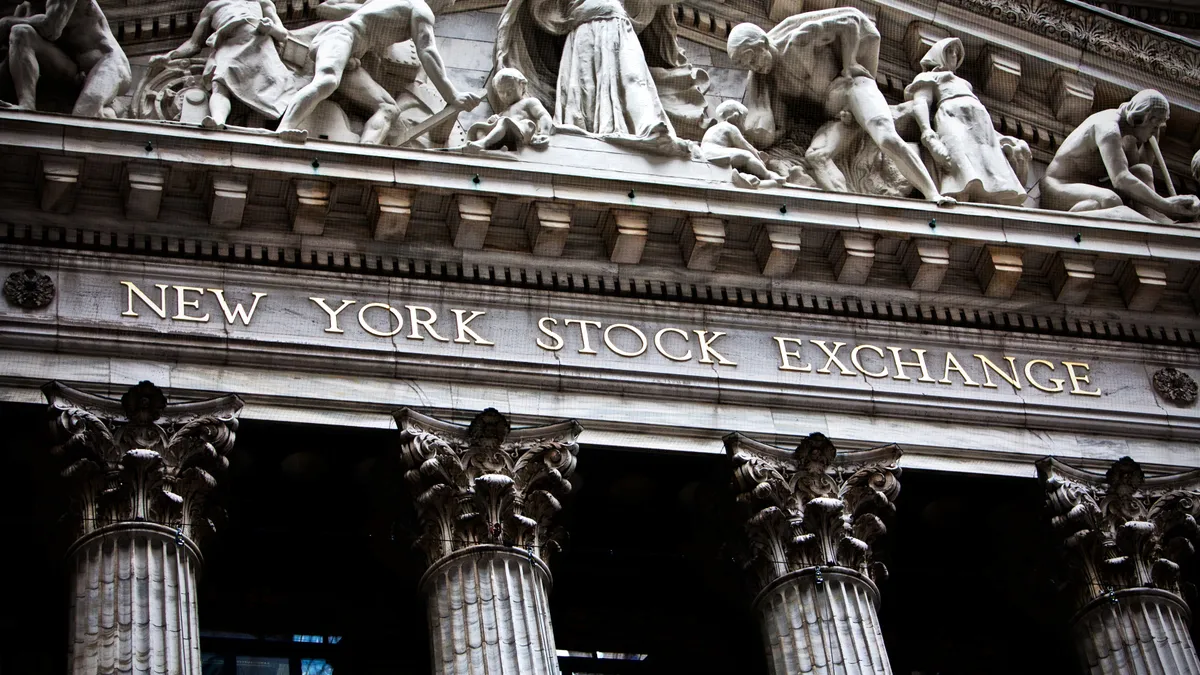Dive Brief:
- Boston Scientific said Wednesday morning its first quarter earnings grew 4.8% to roughly $2.5 billion, falling short of prior company guidance and consensus analyst estimates.
- Executives attributed revenue softness to headwinds from an FDA letter to healthcare providers cautioning against use of paclitaxel-coated devices, the shutdown of a sterilization facility that impacted Boston Scientific's supply of men's health products and an FDA order that the company cease sales and distribution of surgical mesh products for repair of pelvic organ prolapse.
- Amid the disappointing results, Boston Scientific expressed confidence in its structural heart portfolio, which it expects to contribute up to $725 million on the year, buoyed by Tuesday's FDA approval for its Lotus transcatheter aortic valve replacement (TAVR) device, and planned expansion of its Sentinel cerebral protection system in TAVR procedures and Watchman device in patients with atrial fibrillation.
Dive Insight:
Among the challenges during the quarter, growing distrust in paclitaxel devices was one of the most serious for Boston Scientific, with its Eluvia drug-eluting stent caught in the fray. Executives slashed 2019 revenue targets for the device by 50%.
CEO Mike Mahoney said Boston Scientific expects slower Eluvia adoption in U.S. and European markets to continue in the second quarter and potentially into the second half of 2019, calling FDA's planned advisory committee meeting June 19-20 on the subject a "key next dialogue point."
Global Chief Medical Officer Ian Meredith called impact of the meta-analysis to the entire paclitaxel product family "disappointing," saying Boston Scientific still has "considerable confidence in paclitaxel as an anti-restenotic agent" in patients with peripheral artery disease.
On FDA's recent decision to reject the company's PMA application for certain surgical mesh products for repair of pelvic organ prolapse, Boston Scientific reported it has ceased global sales and distribution of the products and now expects a roughly $30 million negative impact globally to 2019 full year revenue. That includes an approximate $5 million sales return reserve recorded in the first quarter and roughly $18 million charge to net income.
CFO Dan Brennan also said that about 95% of all known claims on mesh have been settled.
The company's urology and pelvic health unit was dragged down by the unanticipated shutdown of Illinois sterilization facility Sterigenics, which disrupted supply of some of its men's health products, Mahoney said. He added that the situation has since been resolved, with FDA approving Boston Scientific for in-house sterilization of the products. Full supply is expected to be restored by the end of the second quarter.
Still, the company said the unit was bolstered by the integration of its NxThera and Augmenix acquisitions, which added technologies for patients with benign prostatic hyperplasia or who have received prostate cancer radiotherapy.
A number of analysts noted the temporary nature of the first quarter challenges.
"Although most of these will impact the remainder of 2019, commentary suggests each is largely transient with the exception of headwinds in [Peripheral Interventions] where the June FDA adcom meeting around use of paclitaxel in PAD disease admittedly represents a potentially bigger risk," Jefferies analysts wrote. "More specifically, BSX baked-in $55mn in total headwinds for the mesh recall and ELUVIA slowdown and expects to be back to full supply in Men's Health exiting 2Q following FDA approval (late March) to conduct its own sterilization efforts on these products."
Needham's Mike Matson wrote in a note to investors that "increasing tailwinds," like U.S. launches of TAVR device Lotus and the Vici venous stent, as well as expanded use of Watchman and Eluvia in Japan, "more than offset" the first quarter hang-ups and enable strong organic growth in the second half of 2019.
Among Boston Scientific's forthcoming product rollouts is a new single-use duodenoscope model, as the company looks to capitalize in its endoscopy unit on another safety issue flagged by FDA: contamination problems with reprocessed duodenoscopes.
The company said it will begin a controlled U.S. launch of its Lotus TAVR device immediately, seeking to take market share from Medtronic and Edwards Lifesciences. It's also looking to expand existing site use rates of its Sentinel platform, which it acquired through last year's purchase of Claret Medical, calling protected TAVR the emerging standard of care.
Executives reduced full year guidance to 7% to 8% reported growth, down from 9% on the higher end. It also expects 5% to 7% growth in the second quarter.
The company said it will update guidance upon completion of the more than $4.2 billion acquisition of BTG, the largest of Boston Scientific's many 2018 buyouts expected to close in June or July, following BTG shareholder approval in February.
Editor's note: This story has been updated to add analyst commentary.












